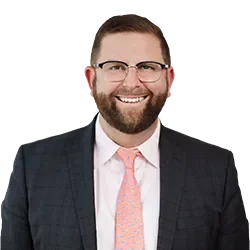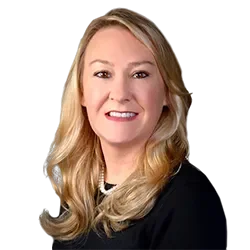ASAP
New York Legislature Proposes to Expand State Jurisdiction Amid Federal Uncertainty
Update: Governor Hochul signed this bill into law on September 5, 2025.
Amid growing concerns about the continued absence of a quorum at the National Labor Relations Board (NLRB) and the resulting inability of the NLRB to issue decisions in representation and unfair labor practice cases, the New York State Legislature concluded its session by passing S8034A/A8590, a bill that would significantly expand the state’s authority in labor matters traditionally handled by the NLRB pursuant to the National Labor Relations Act (NLRA). The bill passed the Assembly on June 17, 2025, by a vote of 128-14, following a 57-1 vote in the Senate the week before. It now awaits review by Governor Kathy Hochul, who has not yet publicly indicated whether she will sign it.
The bill is part of a broader trend among states to expand “state’s rights,” this time in the labor law space which has historically been largely left to the federal government. Supporters of the bill have argued that state legislation is necessary to protect workers’ rights and that the New York State Constitution authorizes New York State to step in the shoes of the federal government when the federal government is unable to act. Opponents of the bill will argue that it creates inconsistency with federal law and undermines the supremacy of federal law.
Bill Summary
The bill proposes to amend Section 715 of the New York Labor Law to expand the New York’s Public Employment Relations Board’s (PERB) jurisdictional reach. Presently, PERB’s authority extends only to public sector employees and private sector employees that are not covered by the NLRA (like farmworkers) or the federal Railway Labor Act. Should Governor Hochul decline to veto the bill, then PERB’s jurisdiction would potentially cover all labor relations matters, except those where the NLRB “successfully asserts jurisdiction” through a federal court order. Therefore, if the NLRB is unable to act—such as during periods without a quorum—PERB may assert jurisdiction over private-sector labor disputes. However, the bill does not explicitly reference an NLRB quorum and it remains unclear how PERB would evaluate whether, or not, the NLRB “successfully asserts jurisdiction” over a particular employer, employee, or controversy.
It also remains unclear how PERB would implement this expanded role both administratively and legally. PERB, which assumed the responsibilities of the former State Labor Relations Board and other labor boards, would be empowered to recognize and certify bargaining units previously certified by federal or other state agencies. During the pendency of PERB’s verification process, the bill provides that the terms and conditions of employment between a “certified exclusive bargaining representative and an employer shall remain in full force and effect through the Board’s verification process.” Currently, PERB’s is limited to public employees and farmworkers, and the process for disputes with unions differs from that under the NLRA. For instance, New York law prohibits both farmworkers and public employees from striking—neither of which are permitted to strike under state law.
Employer Impact
This bill represents a significant shift in the labor relations landscape for New York employers. It introduces the possibility of overlapping and inconsistent state and federal obligations, particularly during periods of federal inaction. Employers may face increased compliance risks and legal uncertainty, as well as reduced flexibility in bargaining and responding to organizing efforts. If implemented, mandatory arbitration may limit employers’ ability to negotiate terms and could result in imposed contract terms for up to two years.
While the bill would appear to defer to the NLRB when the NLRB is able to “assert jurisdiction,” it could still face constitutional challenges on NLRA preemption grounds. Employers should consider the following steps to prepare for potential enactment of the bill:
- Monitor NLRB Activity: Stay informed about the Board’s operational status, which will determine whether state jurisdiction may be triggered.
- Prepare for State-Level Engagement: Consider protocols for responding to PERB inquiries and proceedings.
- Consult Counsel: Employers should consult with labor and employment counsel to assess exposure and develop compliance strategies.
Littler and the Workplace Policy Institute (WPI) continues to monitor this legislation closely and actively works on behalf of employers to ensure their interests are represented as the regulatory landscape evolves.



